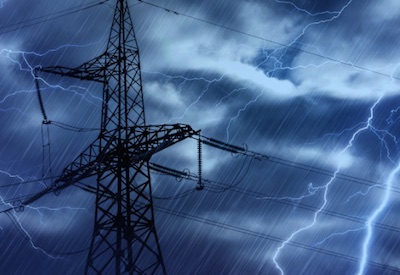CSA Group Releases Potential Climate Change Adaptation Solutions for the CE Code

Mar 31, 2019
Climate change and its associated impacts will play a central role in Canada’s electricity future. In fact, the Conference Board of Canada estimates that approximately $347.5 billion will need to be invested in electricity infrastructure to maintain the system reliability we have today. Making smart investments now can improve the system and help to avoid more severe climate related costs in the future.
“The critical infrastructure we rely on to power our daily lives must remain resilient to more damaging and frequent extreme weather events,” says Mary Cianchetti, President of Standards at CSA Group. “Standards play a critical role in making that happen. Our report on the Canadian Electrical Code is just one example of our ongoing commitment to help Canadians adapt to a changing climate, and help make the world a safer and more sustainable place to live and work.”
The report, Development of Climate Change Adaptation Solutions within the Framework of the Canadian Electrical Code Parts I, II and III, is one of seven climate change adaptation projects launched by CSA Group as part of the National Research Council (NRC) Climate-Resilient Core Public Infrastructure program.
With support from the NRC and funding from Infrastructure Canada, cross-country workshops were held to understand the gaps in current electrical standards, identify best practices in climate adaptation, and gather potential recommendations for future updates to the Canadian Electrical Code.
“The NRC is pleased to support the efforts of CSA Group as they conduct research and consultations on climate-related risks and best practices,” says Phil Rizcallah, Program Director, National Research Council of Canada. “Incorporating climate change considerations into standards will help guide how infrastructure is designed and built to achieve resiliency in the future.”
Some of the recommendations coming out of the workshops include:
• emergency response guidance
• improved weather and loading maps to help inform updates to equipment requirements
• guidelines for exposed installations
• region-specific compliance paths to acknowledge different regional experiences with extreme weather
• coordination with other codes to help ensure all infrastructure — not just electrical — is resilient against a changing climate
The recommendations have since been analyzed and another report, expected to be released this spring, will put forward 50 standards project proposals to support climate adaptation. These two studies will inform technical working group discussions in the next cycle of revisions to the Canadian Electrical Code Parts I, II, and III.
Download the Cross Country Stakeholder Workshops Phase II Final Report.
Photo source: Cross Country Stakeholder Workshops Phase II Final Report









![Guide to the Canadian Electrical Code, Part 1[i], 26th Edition– A Road Map: Section 56](https://electricalindustry.ca/wp-content/uploads/2022/11/Guide-CE-Code-2.png)






